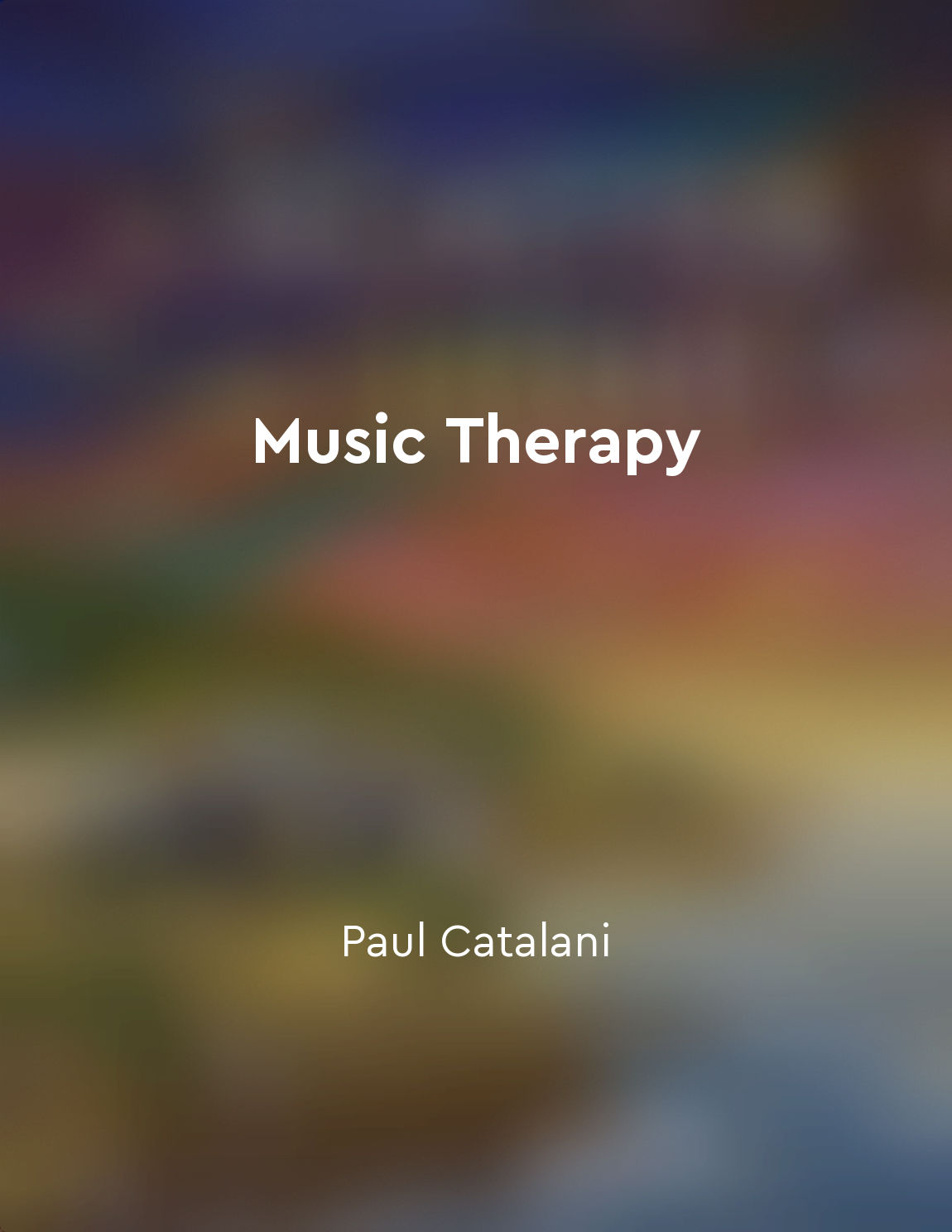Audio available in app
The power of music therapy in healing from "summary" of Music Therapy by Paul Catalani
Music therapy has long been recognized for its ability to aid in the healing process. This unique form of therapy harnesses the power of music to address physical, emotional, cognitive, and social needs of individuals. Through engaging with music in a therapeutic setting, patients can experience a range of benefits that contribute to their overall well-being. One of the key ways in which music therapy promotes healing is through its impact on emotional regulation. Music has the ability to evoke deep emotions and memories, allowing patients to explore and process their feelings in a safe and supportive environment. By connecting with music on a personal level, individuals can work through trauma, grief, anxiety, and other emotional challenges that may be hindering their healing process. Furthermore, music therapy has been shown to have a positive effect on physical health. For example, listening to music can help reduce stress, lower blood pressure, and alleviate pain. In addition, engaging in music-making activities can improve motor skills, coordination, and overall physical functioning. By incorporating music into their healing journey, patients can enhance their physical well-being and increase their overall quality of life. Cognitive benefits of music therapy are also significant in promoting healing. Music has the power to stimulate cognitive functions such as memory, attention, and problem-solving skills. For individuals recovering from brain injuries or neurodegenerative diseases, music therapy can provide a unique avenue for cognitive rehabilitation. By engaging in musical activities that challenge the mind, patients can improve their cognitive abilities and enhance their overall brain function. In a social context, music therapy can promote healing by fostering communication, social interaction, and a sense of community. Group music-making activities provide patients with opportunities to connect with others, build relationships, and develop a sense of belonging. By engaging in collaborative music-making, individuals can strengthen their social skills, improve their communication abilities, and enhance their overall social well-being.- The power of music therapy in healing lies in its ability to address the holistic needs of individuals. By leveraging the emotional, physical, cognitive, and social benefits of music, patients can experience profound healing and transformation in their lives. Through engaging with music in a therapeutic context, individuals can tap into the healing power of music and unlock their full potential for growth and well-being.


